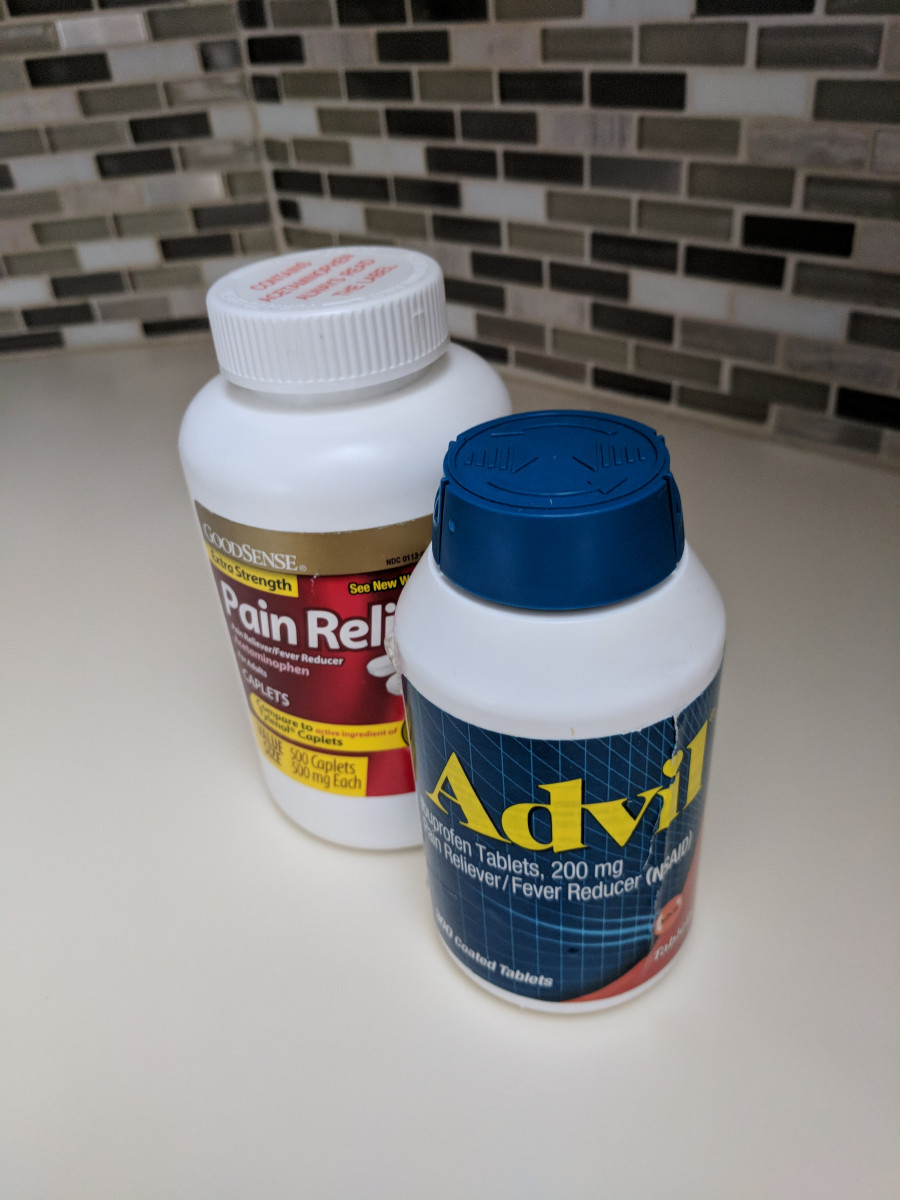Thyroid conditions are one of the most common disorders, affecting some 20 million American women and men. Thyroid hormones are essential for proper health; that little butterfly-shaped gland that sits at the base of the throat controls most of the fundamental processes in the body, including:
- Brain function
- Mental clarity
- Optimal G.I function
- A healthy cardiovascular system
- Appropriate red blood cell metabolism
- Gall bladder and liver function
- Cholesterol metabolism
- Protein metabolism
- Body temperature regulation
- Appropriate steroid hormone production, such as cortisol and glucose metabolism all depends on the thyroid.
This list sums up just about over half of the bodies largest systems; which suggests that when the thyroid is in a state of dysfunction, alarm bells are ringing for the rest of the body. So, people suffering from a thyroid issue may experience a wide array of symptoms
For anyone suffering from a thyroid condition, this may create an image of gloom and doom. But, truly there is SO much we can do to support the health of our body that in return will reinforce, restore, and revitalize any dysfunction occurring in the thyroid and throughout the body.
The key is thinking big. Our thyroid does not exist in a vacuum within the body. In order to reinvigorate the appropriate function of the thyroid, we need to explore the various interconnectedness within the body that can be a culprit in the dis-regulation of the thyroid.
Therefore, when trying to heal our thyroid, we also should think about exploring a holistic approach.
Top Five Strategies for Holistic Thyroid Health
1. Remove Gluten
As a dietitian and a lover of all things food, I take this statement very seriously. Eliminating a whole category of food is a serious lifestyle adjustment and one I don’t like to throw around unless there is well-documented research to support it.
In the case of gluten and thyroid conditions, there has been abundant support for the elimination of gluten to support thyroid health.
Gluten is most concerning in the case of autoimmune Hashimoto’s disease, where the body is attacking its thyroid tissue. Most individuals with any type of autoimmune disease, including Hashimoto’s, have intestinal permeability; meaning the lining of the digestive tract is not doing a proper job of creating a solid barrier between the external environment and their internal environment.
This results in excess inflammation and aggravated immune response due to normal everyday foods. Gluten is a considerable culprit in exacerbating the weak barrier of the G.I tract and thus should be eliminated. That being said, there is even significant evidence supporting the benefit of individuals with subclinical hypothyroidism to explore removing gluten as a means to improve thyroid function! There is evidence that has shown the elimination of gluten for six months to one year leads to a normalization of thyroid function in some individuals. It sounds like it is worth a trial!
So, how does one eliminate gluten? The gold standard is to eliminate gluten 100% for four to six months or ideally make it a long-term lifestyle change. If you have a Hashimoto’s diagnoses, the elimination of gluten may be in your best interest to make a full long-term lifestyle change.
If you don’t have Hashimoto’s or are unsure if you do, try the elimination phase and pay close attention to how you feel as well as retesting a full thyroid panel after six months. I recommend keeping a journal to track changes. Be sure to take note of any improvements in brain clarity, G.I. function, mood, energy, and skin.
If you are overwhelmed or unsure of how to eliminate gluten, working with a dietitian or another healthcare provider who is knowledgeable in guiding individuals through this process can alleviate a great deal of stress. Remember though, the best test is how you feel!
2. Stay Away From Goitrogens: What Are They and Are They Making Me Unwell?
There is a lot of fear in the treatment of thyroid conditions, especially around what to eat or better yet what not to eat. Goitrogens are no different. Goitrogens are naturally occurring substances in some plant families, such as cruciferous vegetables and soy, that interact with thyroid hormones. However, not all goitrogens are created equal!
Cruciferous Vegetables
Cruciferous vegetables, like cabbage, broccoli, and cauliflower, contain goitrogenic substances that can block iodine uptake into the thyroid and thus impede its optimal function. It is important to note that goitrogenic substances are only active in the raw foods, therefore cooking cruciferous vegetables is safe for all thyroid conditions!
If you do have an iodine deficiency driven hypothyroidism, it is wise to avoid the overconsumption of these foods in the raw form until iodine levels are optimized. For all others, consuming these foods in their raw form in a moderate amount should not impede thyroid function. A good idea is to rotate that kale in your green smoothie, juice, or salad for some spinach or other non-goitrogenic greens.
Here is a list of high goitrogenic foods, but remember these foods are welcome in cooked form and can be eaten raw when rotated into a diet and not eaten in excess:
• Bamboo shoots
• Bok Choy
• Brassica genus veggies
• Broccoli
• Broccolini
• Brussels sprouts
• Cabbage
• Canola Oi
• Cassava
• Cauliflower
• Choy sum
• Collard greens
• Horseradish
• Kale
• Kohlrabi
• Millet
• Mizuna
• Mustard greens
• Peaches
• Peanuts
• Pears
• Pine nuts
• Radishes
• Rapeseed
• Rapini
• Rutabagas
• Soy
• Spinach
• Strawberries
• Sweet potato
• Tatsoi
• Turnips
Separating Soy And Canola From The Cruciferous List
The best foundation for whole body health is a nutrient-dense, whole foods diet free from processed foods. Processed foods include everything from your typical junk food images to high-processed protein bars and even salad dressing. Often times the main ingredients include soy and highly-refined canola oil. Their ingredients, when consumed in high doses, have shown to negatively impact the function of the thyroid, so it is important to note how much and how often these foods make their way into our bodies.
Soy – If you are consuming soy, it is ideal to eat it from an organic source and in its most innate form such as edamame, tempeh, and miso. Aim to avoid concentrated sources of soy such as soy protein isolate and soy derivatives in protein bars, protein powders, and processed foods.
Canola Oil – This heavily refined, processed oil s high in omega-6 inflammatory fats and is typically used in the production of processed foods because it is inexpensive. Aim to emphasize higher quality oils such as extra virgin olive oil, avocado oil, and unrefined coconut oil. You can also simply avoid overly processed foods to decrease your consumption of canola oil.
3. Eat A Variety of Foods
It may sound like a simple concept, but variety is truly the best approach to getting a wide assortment of nutrients into your body AND reducing your bodies aggravation to any food sensitivities if they are present.
Food sensitivities and gut health tend to go hand-in-hand. It all comes back to the strength of our G.I. tract as a protective barrier. If our G.I. tract is experiencing any type of assault, such as a microbial imbalance due to bacteria or parasites, sensitivities to specific foods, micronutrient deficiencies, or a combination of any of these causes we can experience inflammation. This can impact our gut health and in turn our whole body. What happens in any one area of the body, including the gut, often does not stay isolated to that one area. The thyroid gland is no exception and can be impacted by inflammation created elsewhere; most specifically in the gut.
Eating a varied diet rich in colorful plants, whole food proteins, and healthy fats is certainly an optimal first line of defense. Other lifestyle approaches, such as avoiding frequent use of over-the-counter painkillers, like Advil, Tylenol or Aleve as well as antibiotic use is key to maintaining a healthy gut.
Avoid Over-The-Counter Pain Medications
The best medicine is to listen to your body! If you are experiencing digestive issues (bloating, acid reflux, etc.); skin conditions; joint aches; brain fog or anxiety; respiratory congestion or other irritating bodily symptoms then you must pay close attention to any connection these have with the foods you are eating most often.
Working with a dietitian or knowledgeable healthcare practitioner can help to alleviate many of these pesky symptoms through simple dietary shifts and improving our bodies own ability to heal.
4. Stress Reduction
Stress management might not sound like a dietitian’s main focus, but it is amazing how impactful stress reduction can be on the health of our whole body, most significantly our thyroid health. The master stress response in the body is directed by the adrenal gland primarily through the hormone cortisol.
Every individual’s experience of stressful stimuli is different, as our thresholds for triggers vary. Stress can be caused by emotional situations like family/relationships, financial, or challenges at work. But, stress can also be physical, such as inadequate sleep or even toxin burden.
When our bodies experience prolonged or significant elevated stress levels, this can eventually deplete our adrenal gland and in turn, impact the function of our thyroid. First, we need to address the stressors and heal the adrenal function THEN the thyroid can be treated or better yet an individual might find it improves some on its own.
Stress reduction techniques depend on the individual. Identifying what is producing the greatest stressor is a great place to start, but then figuring out how to deal with it can be another journey. Maybe it can be removed or diminished, maybe a perspective shift can occur, or perhaps adopting daily stress reduction practices such as yoga, gentle exercise or any calming activity can help. Addressing sleep is another key piece. We must ensure there is a deep, restful sleep occurring to help heal adrenal function. Adaptogens, a category of foods that contain chemicals to help reduce the bodies burden of stress, can also be explored when appropriate.
There is no shortage of stress reduction technique and approaches, but it is most important to find what method works for you!
5. Find Your Squad!
The final piece is to find a support team, which might include a dietitian as well as a functional medicine practitioner who are familiar with holistic wellness and can help to support healing from a whole body approach. A functional medicine practitioner is especially important, as they can test and interpret a whole thyroid panel. This helps to paint the full picture of what is occurring in the thyroid and not just looking at the TSH value, which is only one side of the equation. This information is important as there is a myriad of intricacies to the thyroid gland and there are a million ways its function can go awry.
In general, a full thyroid panel test might include TSH, Free T3, Free T4, reverse T3, TPO & TG antibodies.
Working with your healthcare provider to determine which tests are most important for you is key to getting the care you need.
The most important piece of this puzzle is that you feel heard by your healthcare provider! Symptoms of thyroid dysfunction can negatively impact so many areas of an individual’s life. So, find yourself a team who is open to exploring all the avenues to getting your health and vitality back!
The IFM Patient Resource Center is a great resource to find a Functional Medicine Practitioner near you.
Healing your thyroid can be a journey, but finding the right guidance and support to navigate that journey can make all of the difference!
Abigail Hueber, RD, LDN – www.abovehealthnutrition.com
About Abby
Abigail is a Registered Dietitian who is passionate about helping individuals of all ages attain optimal health and well-being. Abby received her undergraduate degree from Gettysburg College in the field of Health and Exercise Sciences continuing on to complete her graduate studies in nutrition at Simmons College.
Abby is the dietitian behind Above Health Nutrition where she practices utilizing an integrative and functional nutrition approach, which helps to support an individuals health through a holistic body and mind focus based on science-based functional medicine. She has advanced training in functional medicine having completed the School of Applied Functional Medicine created and taught by medical doctor Tracy Harrison, MD a renowned functional medicine practitioner and educator. Her professional interests include optimizing digestive health, skin conditions, weight management, women and adolescent girls health, specialty diets, and overall disease prevention.
In addition to Above Health Nutrition, Abby is the Dietitian and Wellness Educator for Newton Country Day School an all-girls school in Newton, MA where she works to empower young women to develop a healthy relationship with food and their own body.
Abby also works as a nutrition consultant for companies in a variety of capacities. She consults as a Guided Reboot Coach and nutritionist for Reboot with Joe, helping individuals build a foundation for long-term health through a plant-based lifestyle. She consults for the United States Healthful Food Council’s REAL certification program that works with restaurants and food service to establish best practices around nutrition and sustainability. She also leads speaking series and events for corporate wellness programs on a variety of health and wellness topics.






